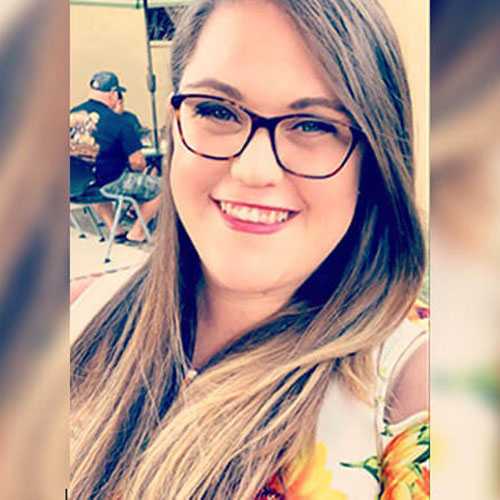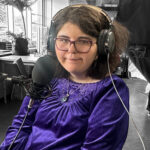February 25, 2026
Spotlight on Diversity in ABA: An Interview with Angela Parker
FEATURED POSTS
January 27, 2026
December 30, 2025
Passionate about improving the lives of kids with autism and their families, Angela Parker works as a board certified behavior analyst (BCBA) for Autism Spectrum Therapies (AST) in California’s San Gabriel Valley region. She and her team of 17 are committed to the consistent, ethical use of the programs AST and LEARN provide. In this interview, she discusses her experiences in ABA and her involvement with AST and LEARN’s Diversity, Equity, and Inclusion (DEI) Plan, a longstanding commitment to fostering a culture that embraces what makes us each unique.
Q: WHY DID YOU GET INTO ABA?
A: I took a course during undergrad called “Through Another’s Eyes,” where I volunteered at a company that hired adults who were disabled prior to age 18. It changed my worldview, and I stayed on longer to complete an internship there. Following graduation, I started as a 1:1 paraprofessional in a school district and learned how to run a Discrete Trial Training (DTT) session. Realizing how much I loved these two experiences, and how much I loved working with this clientele, I decided to look into working full-time in ABA.
Q: WHAT DOES DIVERSITY, EQUITY, AND INCLUSION (DEI) MEAN TO YOU?
A: Diversity helps me understand someone else’s perspective. Diverse representation on my team and caseload teaches me various aspects of cultures I may not have been otherwise exposed to. Inclusion encourages me to be more aware, to look at how environments can and should create safer spaces, depending on—and regardless of—background. Equity reminds me that I should make sure I develop these safe spaces for my clients, for the staff I mentor, and for the colleagues with whom I interact.
Q: WHAT IS THE MOST CHALLENGING ASPECT OF WORKING IN A DIVERSE ENVIRONMENT?
A: It’s ensuring I am culturally competent regarding the people I interact with daily, which involves being mindful of the impact my actions have on those around me.
Q: WHAT IS YOUR APPROACH TO UNDERSTANDING THE PERSPECTIVES OF COLLEAGUES OR CLIENTS FROM DIFFERENT BACKGROUNDS?
A: I tend to ask clients or staff questions so I can learn if they are doing something I have never been exposed to or am not familiar with. An example that sticks with me is a time I worked with a Hindu family celebrating Diwali. I was curious about what the various decorations symbolized, if the family would need to take time off for festivities, how the holiday was developed, and its importance in their culture. Learning about all of this not only helped me in my role but also taught me something new.
I also tend to check in with parents regarding social skills and if, in their culture, certain skills are acceptable skill to teach. For example, a Nigerian client shared how expectations of children when responding to adults in their culture counters typical Western responses, such as the Western habit of looking at adults in the face. Another family shared that it is not customary for children in their culture to ever call their parents by their first names or know parents as anything other than ‘mom’ or ‘dad.’
Q: WHY IS DEI IMPORTANT IN ABA?
A: DEI is important in ABA because as clinicians, we want to promote inclusivity across any background or way of life. I try to focus my practice on being mindful of every client and family’s situation. This involves being as sensitive as I can to promote success, while also understanding potential limitations. I try to model for my staff how to be culturally curious and respectful of family dynamics. And I always remind them that just because we’ve had an experience with people of a certain background, it doesn’t mean a new family with the same background will respond or have the same cultural preferences. Everyone is unique, and it’s our job to respect that.
Q: TELL ME ABOUT A TIME WHEN YOU ADVOCATED FOR DIVERSITY AND INCLUSION.
A: Once, on an outing with a client to practice tolerating using hand-drying machines, my client had a difficult time with the noise. A staff member asked us to leave because my client was having a tantrum. I asked the parent if they were OK with me speaking to the manager for them, which they were. After session, I returned to the store to speak to the manager and explain what we were doing. The manager understood, and moving forward, the staff always greeted us, and the parent felt more at ease because they did not feel as judged by the staff during our daily outings.
Q: WHAT’S SOMETHING MOST COLLEAGUES DON’T KNOW ABOUT YOU?
A: Most people know that I come from a large family (four sisters and two brothers), but they don’t know that I come from a blended family. I say I have six siblings, but in reality, others may say: ‘Oh those are your step-sisters, your half-sisters, your adopted brother. They’re not really your siblings.’ Statements like this can be extremely harmful, because growing up, we never labeled one another that way. It was even harder because my one full biological brother looks like the complete opposite of me. I have my mother’s light features: light eyes, light skin, light hair, while my brother has my father’s features: dark hair, olive skin, dark eyes, because we are multi-racial. Statements questioning family relations create divides and identity issues that aren’t necessary. All I ever think when this happens is: ‘This is just my family, and I am surrounded by love. Is that not enough?’
For another story from our series, Spotlight on Diversity in ABA, read “An Interview with Giovanna ‘G’ Bosco.”







